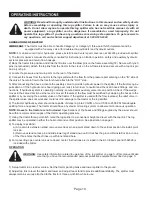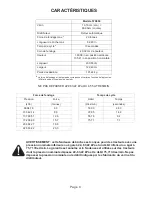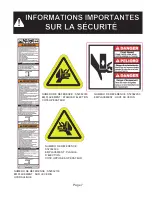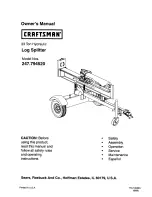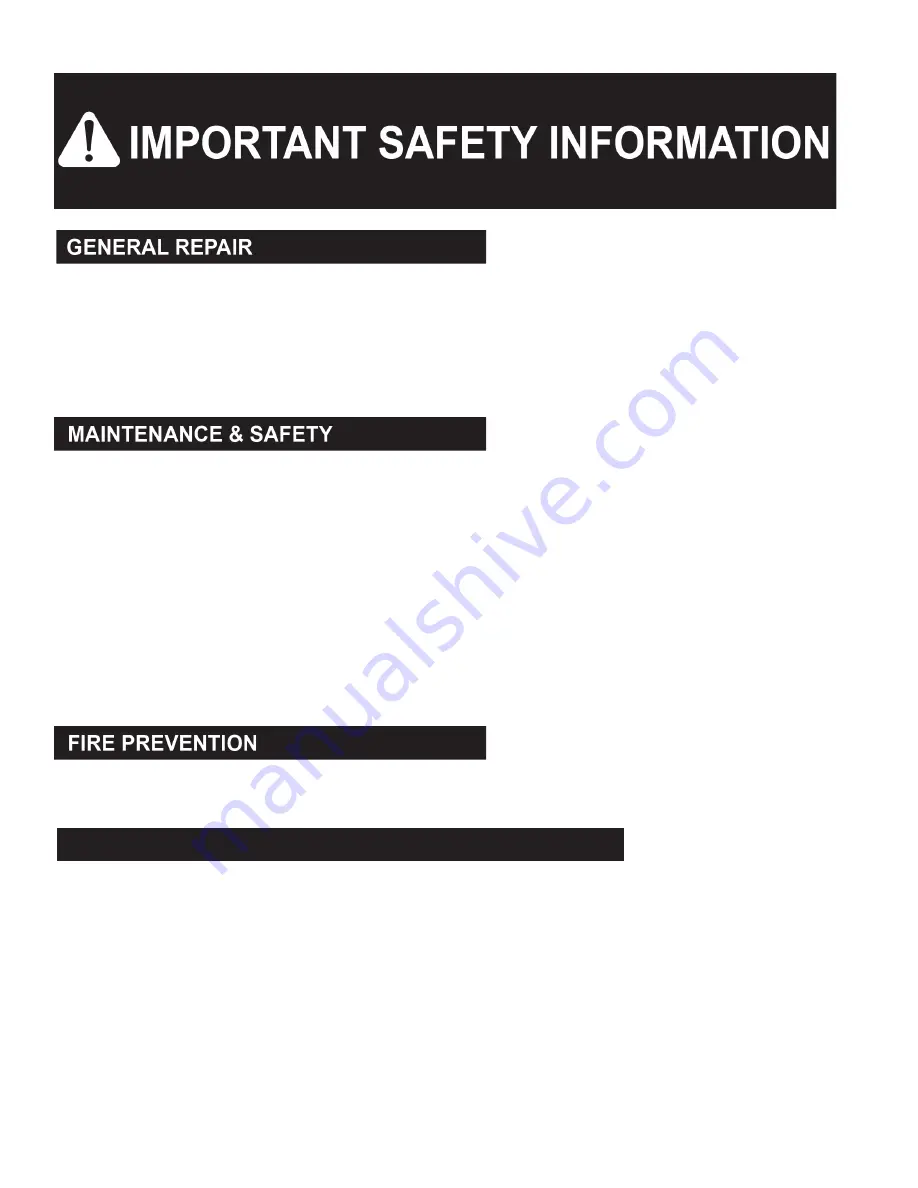
Page 6
• NEVER
operate your log splitter when it is in poor mechanical condition or in need of repair.
• NEVER
alter your log splitter in any manner. Such alterations may cause your log splitter to be unsafe and will void
the warranty.
• ALWAYS
perform all recommended maintenance procedures before using your log splitter.
• ALWAYS
periodically check that all nuts, bolts, screws, hydraulic fittings and hose clamps are tight.
• ALWAYS
replace all damaged or worn parts immediately.
• ALWAYS
be sure that all replacement parts meet manufacturer’s specifications.
The hydraulic system of your log splitter requires careful inspection along with the mechanical parts. Be sure to replace
frayed, kinked, cracked or otherwise damaged hydraulic hoses or hydraulic components.
•
NEVER
check for leaks of hydraulic fluid with your hand. Fluid escaping from a small hole can be almost invisible.
Escaping fluid under pressure can have sufficient force to penetrate skin causing SERIOUS INJURY or DEATH.
Leaks can be safely detected by passing a piece of cardboard over the suspected leak and looking for discolor
-
ation.
•
ALWAYS
seek professional medical attention immediately if injured by escaping hydraulic fluid. Serious infection
or reaction can develop if proper medical treatment is not administered immediately.
•
NEVER
adjust the hydraulic valve. The pressure relief valve on your log splitter is preset at the factory. Only a
qualified service technician should perform this adjustment.
•
ALWAYS
be sure to relieve all pressure by shutting off the engine and moving the valve control handle back and
forth should it become necessary to loosen or remove any hydraulic fitting.
•
NEVER
operate your log splitter near a flame or spark, or smoke during operation. Hydraulic oil is flammable and
can explode.
•
NEVER
move your log splitter without tractor or adequate help.
•
NEVER
carry cargo or wood on your log splitter.
•
NEVER
allow anyone to sit or ride on your tractor.
•
NEVER
exceed weight capacity of tractor.
•
ALWAYS
confirm 3 point pins are secure with lynch pins in place before lifting or transporting log splitter.
•
ALWAYS
have your log splitter attached to 3-point hitch before operating it.
•
ALWAYS
allow for added length of your log splitter when turning, crossing intersections and in all transporting situ
-
ations.
•
ALWAYS
attach to Category I or II 3-point hitch only.
•
ALWAYS
replace attachment pins or 3-point hitch components if damaged or excessively worn.
•
ALWAYS
have beam pinned down for transport.
3 POINT CONNECTION AND TRANSPORT SAFETY










